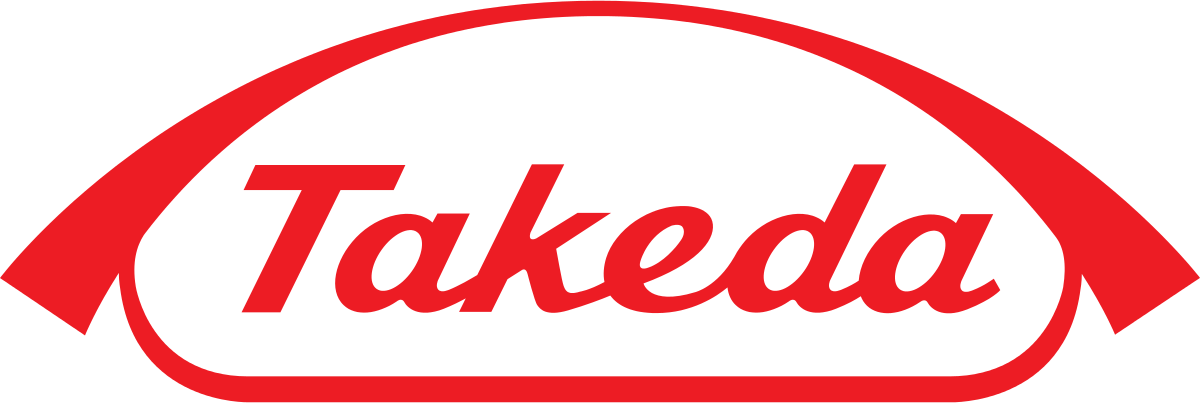Partner's Blog - April 2022
Thanks for visiting the April 2022 Partner's Blog!
View all Partner's Blog updates
Thank you for visiting the April 2022 Partner's Blog! I hope that you find the featured information helpful.
The Corporate Affiliates Program provides an exciting opportunity for companies to support the work of the American Society of Transplantation (AST) and receive tangible benefits throughout the year. The following companies are members of the 2022 Corporate Affiliate Program (CAP).
For additional partner information, check out AST Partner Connect.
Richard Formica
AST Development Chair
What's News With Our Partners:
- Atara Biotherapeutics, Inc. (@Atarabio) is a leading allogeneic T-cell immunotherapy company leveraging its novel allogeneic Epstein Barr virus (EBV) T-cell platform to develop therapies for patients with serious diseases including solid tumors, hematologic cancers, and autoimmune diseases. Atara’s pipeline includes tabelecleucel in Phase 3 development for EBV-driven post-transplant lymphoproliferative disease (PTLD) and in earlier stages of development for other EBV-associated diseases, ATA188 for progressive forms of multiple sclerosis, and next-generation CAR T therapies for solid tumors and hematologic cancers.
- Atara is now enrolling participants in the ALLELE study, a multicenter, open-label, phase 3 study of tabelecleucel for solid organ or allogeneic hematopoietic cell transplant subjects with Epstein-Barr virus-associated post-transplant lymphoproliferative disease (EBV+ PTLD) after failure of rituximab or rituximab and chemotherapy. For more information about this study, please visit https://www.clinicaltrials.gov/ct2/show/NCT03394365.
- Atara is also enrolling participants in the ATA-129-EBV-205 study, an open-label, single-arm, multi-cohort, phase 2 study to assess the efficacy and safety of tabelecleucel in subjects with Epstein-Barr virus-associated diseases. For more information about this study, please visit https://www.clinicaltrials.gov/ct2/show/NCT04554914.
CareDx announced publication1 of results from The ADMIRAL Study, Assessing AlloSure Dd-cfDNA Monitoring Insights of Renal Allografts with Longitudinal Surveillance (NCT04566055), a large, multicenter prospective study.
The study results published in Kidney International1 showed that AlloSure Kidney can be:
- Used in both subclinical and clinical rejection: Elevated AlloSure dd-cfDNA strongly correlated with clinical and subclinical allograft rejection
- Predictor of de novo donor-specific antibody (dnDSA) detection: Elevated AlloSure dd- associated with a 271% increased risk of dnDSA development
- Leading indicator of donor-specific antibodies: AlloSure dd-cfDNA was elevated 91 days (median) ahead of DSA identification.
- Superior to serum creatinine: AlloSure showed a 62% relative improvement over serum creatinine in identifying subclinical and clinical rejection
Learn more by reading the full study at https://caredx.ac-page.com/admiral-dec-2021
The Transplant Company™ announced the results of a study led by the NIH, published in JHLT2, “Donor-derived Cell-free DNA as a Composite Marker of Acute Lung Allograft Dysfunction in Clinical Care,” that validates the ability of AlloSure® Lung to detect signs of organ rejection and infection in asymptomatic lung transplant recipients in a surveillance setting. The use of AlloSure Lung also identified episodes of acute rejection and infection that would have been missed using a biopsy strategy alone.
For diagnosis of ACR, AMR, or infection in these patients, dd-cfDNA yielded a sensitivity of 73.9%, specificity of 87.7%, positive predictive value of 43.4%, and negative predictive value of 96.5%, with an area under the curve (AUC) of 0.82. Using an AlloSure Lung surveillance strategy, there were 83% fewer invasive biopsies than would have been performed under a surveillance biopsy program.
Read the full publication here: https://www.jhltonline.org/article/S1053-2498(21)02630-9/fulltext
1. Bu L, Gupta G, Pai A, et al, Validation and clinical outcome in assessing donor-derived cell freeDNA monitoring insights of kidney allografts with longitudinal surveillance (ADMIRAL) study. Kidney International (2022), doi: https://doi.org/10.1016/j.kint.2021.11.034.
2. Keller M, Sun J, Mutebi C, et al. Donor-derived Cell-free DNA as a Composite Marker of Acute Lung Allograft Dysfunction in Clinical Care. The Journal of Heart and Lung Transplantation. December 26, 2021. DOI: https://www.jhltonline.org/article/S1053-2498(21)02630-9/fulltext
- Be part of Immucor’s kSORT®clinical studies! Interested in monitoring your transplant patients with kSORT? We are looking for collaborators for our clinical study program! kSORT is a non-invasive blood test to monitor kidney transplant recipient immune activation associated with allograft rejection. kSORT is available exclusively as a Laboratory Developed Test (LDT) through Immucor DX, the company’s CLIA certified and CAP accredited independent clinical laboratory. Visit www.ksort.immucor.com for more information about this exciting opportunity.
- Immucor will be at ATC June 4-8, 2022 in Boston, MA! Come visit our booth and learn more about all Immucor has to offer!
- Immucor is excited to announce our Virtual HLA Global Scientific Symposium being held July 12th – July 14th. Join Immucor and speakers from around the globe as they present on new frontiers in transplant diagnostics. Don’t miss out, register today at: https://www.immucor.com/events/category/transplant/
- Immucor is a proud partner and gold sponsor of the 18th International HLA & Immunogenetics Workshop, May 2022 in Amsterdam, The Netherlands. We invite you to participate in the exciting projects that aim to better understand and define HLA epitopes and clinical relevance of non-HLA antibodies in the absence of donor-specific HLA antibodies. Click here for more information: https://view.highspot.com/viewer/6148ea094c07b68e210885ce
- Immucor is a preferred partner of PIRCHE! Immucor is committed to uncovering new frontiers in epitope matching. Immucor’s integration tool provides automated data transfer to the PIRCHE matching modules with a simple click of a button! Utilizing the PIRCHE service REST, PIRCHE scores are transferred back to the tool. To learn more about using PIRCHE with Immucor’s MATCH IT! Antibody Software or MIA FORA NGS software or to arrange a demo contact your local Immucor representative or visit us on www.immucor.com.
Join us during our symposium at CEoT 2022. Dr. Philip Halloran will present new Prospera with Quantification data from his Trifecta study, the largest multisite prospective fully biopsy-matched cfDNA validation study in kidney recipients. New published cfDNA data in simultaneous kidney-pancreas as well as ongoing rejection monitoring data in multi-organ transplant and Torque Teno Virus (TTV) will also be discussed.
Wednesday, April 6th from 12:00 PM – 1:15 PM EST
Miss the event? View the on-demand webinar here
Transplant rejection can be missed. Adding Prospera to your toolkit can help prevent this. Transplant recipients often have a complex set of risk factors for transplant rejection. Regularly scheduled testing with Prospera identifies out-of-baseline trends that may indicate larger transplant issues, enabling physicians and patients to quickly tailor healthcare with the most current data. Explore some case studies HERE and see how Prospera can have a positive impact for any patient type.
New publication illustrates the utility of genetic testing for living donors. Genetic testing is critical in potential kidney donors with a family history of kidney disease. Click here to read the full publication. Practical issues with incorporating genetic testing in transplant protocols, as well as specific cases, are discussed in the publication.
Meet the Kidney Transplant Connectors
Sanofi is proud to offer the Kidney Transplant Connectors program, which brings together donors and recipients to help educate people in need of a kidney transplant by sharing their own journeys. Available in English and Spanish, this program is offered in-person and virtually. Learn more by visiting: https://www.kidneytransplantconnectors.com/
- Thanks to the transplant patient community and principal investigators, Takeda has recently completed enrollment in a Phase 3 interventional study of an antiviral treatment in hematopoietic stem cell transplant recipients. Takeda remains committed to developing innovative solutions for those facing hard-to-treat conditions, especially those representing underserved populations.
- In February 14, 2022, Takeda celebrated National Donor Day by thanking those who work in transplant centers across the U.S. and helping to raise awareness for patients directly impacted by transplantation on both LinkedIn and Twitter. Learn more about organ donation and how you can help at https://www.donatelife.net/.
- In honor of Rare Disease Day on February 28th, Takeda acknowledged the success of our newest rare disease team that is focused on transplant care and is deeply committed to impacting individuals and families facing post-transplant complexities. To learn more about our commitment to rare diseases, visit: https://www.takeda.com/what-we-do/areas-of-focus/rare-diseases/.
- This March, Takeda recognized National Kidney Month by raising awareness for the 37 million individuals in the U.S. who are impacted by chronic kidney disease. To Learn more about kidney health and how you can get involved, visit: https://www.niddk.nih.gov/health-information/community-health-outreach/national-kidney-month.
We are very encouraged to report that our investigational agent, VEL-101, has been granted fast track designation by the FDA. VEL-101 is a novel investigational maintenance immunosuppressive agent being developed for prophylaxis of acute rejection in kidney transplants recipients.
To learn more, read the full press release here: www.veloxis.com


- Verici Dx and Illumina are collaborating to expedite the operational launch of data analysis processing and predictive AI component of Verici Dx’s products with early access to Illumina’s ICA, their new software platform for operationalized secondary analysis with an advanced data science environment.
- The American Medical Association granted Verici Dx two CPT® Proprietary Laboratory Analyses (“PLA”) codes for Clarava™ and Tuteva™.
- Successful completion of analytical validation for two lead in vitro diagnostic assays, Clarava™ and Tuteva™ under the CLIA requirements.
Check out all of our CAP partners:















